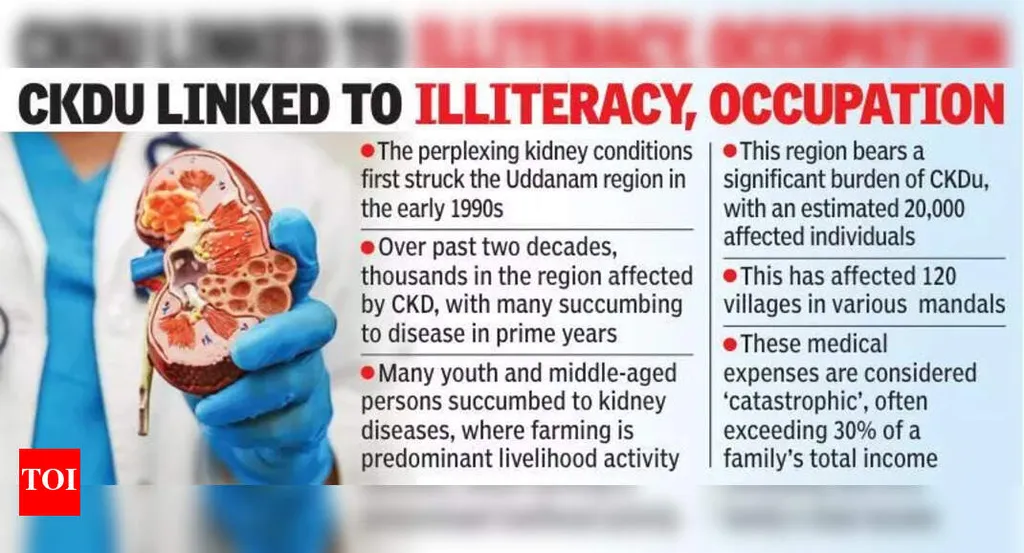Arumugam’s story is not an isolated case but a reflection of a broader, alarming trend affecting rural communities in India and beyond. The rise of Chronic Kidney Disease of unknown origin (CKDu) among agricultural laborers is a growing concern, with significant implications for the agriculture sector and investors.
The agriculture sector, which employs a substantial portion of India’s workforce, is grappling with the health crisis. The disease is not only affecting the health and well-being of workers but also impacting productivity and labor availability. Workers like Arumugam, who have been diagnosed with CKDu, often find themselves unable to continue working, leading to a loss of income and increased financial burden on their families. This, in turn, can lead to a vicious cycle of poverty and poor health.
The implications for investors are equally significant. The agriculture sector is a major contributor to India’s economy, and any disruption in labor can have ripple effects on production, supply chains, and ultimately, profitability. Investors need to be aware of these risks and consider the potential long-term impacts on their investments.
Moreover, the rising prevalence of CKDu is also a call to action for investors to consider their role in promoting sustainable and safe working conditions. Investments in agriculture should not only focus on yield and profit but also on the health and well-being of workers. This includes advocating for and investing in measures that protect workers from excessive heat exposure, such as providing adequate rest breaks, access to clean drinking water, and proper sanitation facilities.
The link between CKDu and climate change further underscores the need for action. As global temperatures continue to rise, the risk of heat-related illnesses, including CKDu, is expected to increase. This makes it all the more urgent for investors to consider the climate resilience of their investments and the measures in place to protect workers.
In conclusion, the rise of CKDu among agricultural laborers is a complex issue with far-reaching implications. It highlights the need for a multi-faceted approach that addresses health, labor rights, and climate change. For the agriculture sector and investors, this means not only mitigating risks but also seizing the opportunity to promote sustainable and equitable practices that benefit workers, communities, and the environment.

